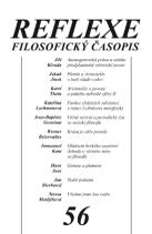The Immortal Psychê and the Wandering Daimôn
By applying the idea of two independent philosophical traditions, as suggested by Diogenes Laertius (I,13), we can recognize two considerably different notions of the soul in the pre-Platonic textual corpus. In the so-called Ionian tradition, the soul (psuchê) was viewed as a principle of life and gradually came to be regarded, in its psychological aspects, as a centre of emotions, hopes, character, speech, intellect, etc. In what is called the Italian tradition, we can often find speculations about the immortal „occult“ self (similar to the Homeric eschatological psuchê), in some versions accompanied by a theory of reincarnation. No matter whether one called the self eidôlon, daimôn, or psuchê, it was always free of any psychological connotations. The article argues that Plato was the first thinker who intentionally combined the two originally incommensurable notions of the soul.
Backlinks: Reflexe 29
